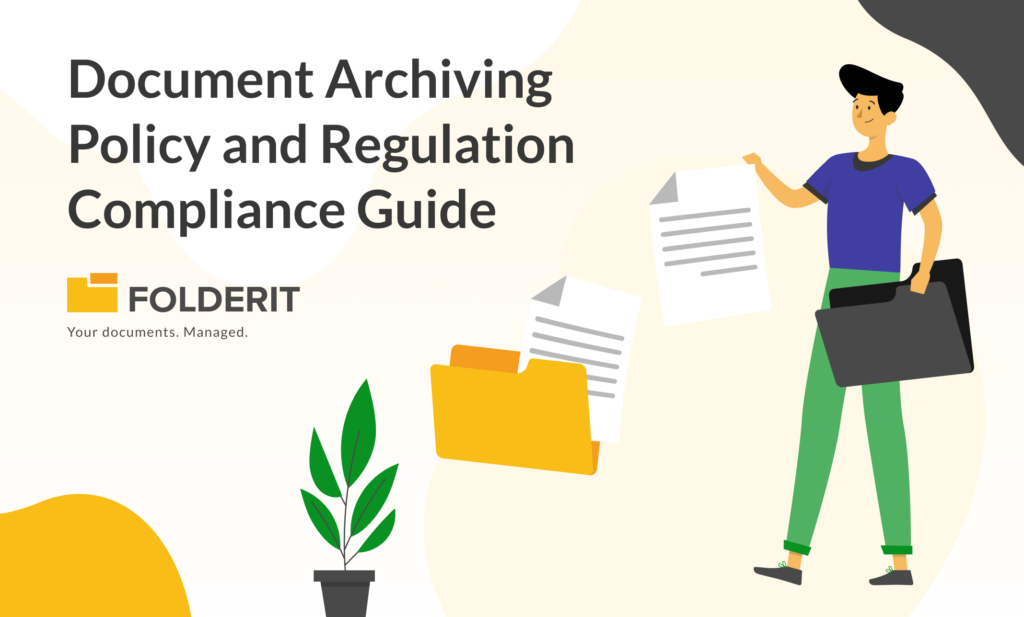Records and Information Management (RIM) is an important area of compliance for any firm. It is responsible for both paper and digital records. Organizations must keep records in accordance with regional, national, and even worldwide requirements.
Violations of the norms established by these statutes result in heavy fines and penalties. There have been cases of well-known firms risking hefty financial penalties for failing to comply with RIM legislation.
Businesses must protect their records and client data and RIM systems should be upgraded to comply with the most recent regulations.
This is easier said than done, however, because regulations change regularly, and business owners will need to comprehend the complexities of the laws to ensure compliance. RIM is an ongoing process because records management itself is an ongoing activity. It necessitates tight rule enforcement throughout the document management lifecycle.
Failure to comply is simply not an option! It can have monetary ramifications and reduce profit margins. RIM breaches may result in negative publicity and discourage future clients. However, this does not imply that RIM compliance is difficult to achieve.
RIM compliance strategy
1. Keep up with the most recent changes in records management regulations.
Changes in RIM regulations may need a rethinking of your organization’s records management strategies. Rest confident that the government allows organizations plenty of time to respond to big legislative changes. There will, however, be deadlines for you to meet the new compliance obligations. To avoid fines, make sure you don’t miss the deadline. As soon as a new law is signed, begin making modifications to your internal RIM policy.
It’s also important to familiarise yourself with some of the currently important Records Management Laws.
2. Keep in mind that even a single violation can cost your company a lot of money.
Failure to comply with records management requirements puts your firm at risk. Violations have major financial ramifications, as well as the possibility of legal troubles for leaders and owners. Understand the potential consequences of failing to obey relevant legislation. Changes in records management strategies should be prioritized in order to alter your operations to conform with records management best practices.
3. Determine any vulnerabilities in your present records management process.
Conduct a thorough and unbiased assessment of your company’s records management practices. Determine the improvements that will be required to completely comply with your RIM policy:
- Make sure that information is searchable and that staff can access it as needed.
- Enable proper access control for physical and electronic documents.
- Install checks and balances to guarantee that documents or electronic records are not lost, destroyed, or deleted by mistake.
- Examine your organization’s document retention policies.
- Establish standards for the proper disposal of expired content.
- Define and assign precise duties to staff who will implement the modifications from start to finish.
4. Evaluate your current records management processes to check their efficiency
While developing strategies and processes to adapt to changes in records management regulations, keep in mind how much additional time will be required to align with the changes. Due diligence is essential, but it must be optimized to preserve overall organizational productivity and efficiency. Determine the cost of modifications to compliance and make certain that they are budgeted for.
5. Use digitization to comply with records management legislation.
It is critical to establish the most efficient, effective, and cost-effective method of complying with RIM rules. Consider digitizing your documents if your organization relies significantly on physical records. A modern document management system (DMS) makes records management simple and efficient. The first reaction of business executives and owners to this notion is that it is a costly and time-consuming endeavor. Consider the following:
- In the long run, digitization saves time, effort, and money. This greatly outweighs the immediate cost.
- Digital records are easier to find, distribute, and store.
- The use of electronic data decreases the danger of data loss due to natural catastrophes and accidents.
- Data encryption methods such as SSL make digital records more secure.
- It is simpler to link electronic data with other company systems and supply employees with richer data so they can make better data-driven decisions.
- When records are digital, it is easier to comply with RIM standards.
Why Do We Have RIM Regulations?
RIM regulations are intended to protect the interests of corporations while also protecting customers and end users. It is critical not to become overwhelmed by the obvious challenges of implementing regulations and policies. Instead, consider how these RIM tactics might assist your firm in protecting business information and ensuring the security of essential customer data.
Businesses must identify processes and procedures to maintain business documents, as well as build a clear and proactive records management plan. Conduct a systematic study on the necessary adjustments to current policies. Audit your RIM procedures on a regular basis and react to new rules as soon as possible.
Important Features of Records Management Regulation Compliance:
- Integrate best practices in records management into daily activities.
- Communicate RIM policies to all personnel explicitly and emphasize the significance of compliance.
- Proactively implement best practices before you suffer noncompliance issues or document loss.
- Implement security measures to avoid information leaks and protect critical documents and client records.
- Protect electronic records from security breaches, hacking, and unintentional erasure.
Use Folderit’s Document Management System to Manage Records and Compy with Legislation
Deploy Folderit’s DMS’s to comply with all legislation, and stay on top of all worries that may come your way.
Folderit has cutting-edge security, utilizing Amazon’s S3 service, and 256-bit SSL encryption. That’s better security than most governments have.
Oh, and did we mention our integrations?
Curious to know more? Read up on how DMS’s reduce paperwork and help in managing records



